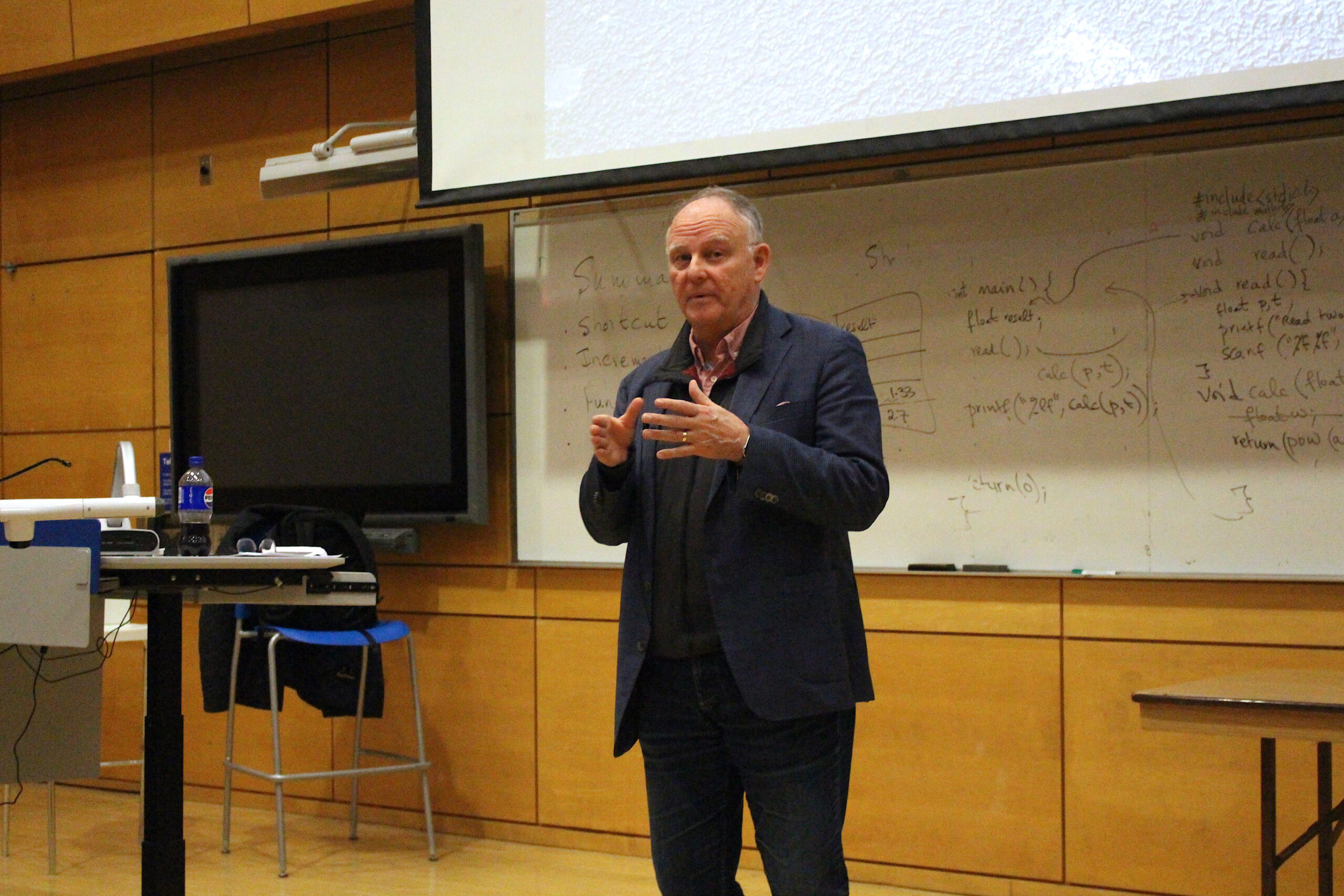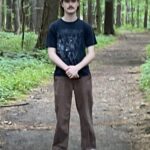
Listen to the full story:
Conflicts in foreign countries mean more refugees will seek homes in Canada and we’re not doing enough to accommodate them, according to retired Maj.-Gen. David Fraser of the Canadian Armed Forces. Fraser noted there are currently over 100 million people who are displaced, largely due to the conflict and unrest in question. The problem, he said, is that “Canada has a capacity of about 300,000 people a year that we can bring in. That capacity, it’s housing, medical, education, and daycare. To bring a million people in, where do you put them? It affects each and every one of us.”
The International Issues Discussion series, organized by TMU students and staff, hosted a lecture titled “You Can’t Make This Stuff Up: Regional Insecurity and its Impact on Canada” on Wednesday. The talk featured Fraser, who led Canadian and NATO forces during the War in Afghanistan and now works as a military analyst. During his talk, Fraser used his expertise to discuss the complexities of today’s geopolitical situation and how conflict reaches far beyond the lives of those who get caught in it.
Fraser said the Canadian government will have to change the way they do things because of this demographic shift that will happen with more and more refugees. In 2024, Canada plans to admit 485,000 immigrants, 76,115 of whom are to be refugees. “It’s not as bad of a problem here in Canada, I don’t think, because we’ve always been multicultural and multiethnic, and we’ve embraced our differences. But our school system is still based on a person that looks like this [Fraser points to himself, an older white man]. Our rules and regulations were built on somebody who looks like this, and has been for 100-plus years, it has to change. It has to change to represent the new face of Canada. And that is putting on huge pressures, not just here, but all the way around the world too.”
But Fraser said this isn’t the only impact conflict has on Canada. Canada’s economy is also affected by geopolitics. Fraser points out the blockade in the Red Sea by Houthi rebels from Yemen as one situation disrupting the global supply chain and driving up costs. “In the supply chain, in the months to come, there will be impacts from what’s going on here [Gaza], which has drawn in the United States of America, because what started off as piracy is now actually becoming a world economic problem. This is a consequence of the war in Gaza,” he said.
Meanwhile, Fraser said China is on track to become the world’s top superpower through “economic means,” as opposed to violence, something Karim Sameh agrees with. “I do think that if there is a shift towards the East, it will definitely affect not only Canadians but every single Western country,” said Sameh, a TMU engineering student who attended the lecture.
Another issue Fraser said will affect Canadians in the future is that “the reality is something’s happening in the climate. And that is changing everything, including how we look at the North.” Now that new passages are available through the Arctic, Canada’s Arctic sovereignty will be disputed by other near-Arctic countries, believes Fraser. Ultimately, “we’re not addressing a lot of the things that are going to affect our sovereignty in the North fast enough,” he said.
TMU professional communications student Danylo Zdravic said Fraser delivered an important lesson. “You could take the route of being very apathetic and ignorant and go about your daily life, paying your bills, whatever. And that’s understandable, especially in these trying times, we have a lot to deal with. I’m not negating that. But on the other hand, you have to really acknowledge and take it as a sort of revelation to realize what’s really going on as much as we might have our problems in the so-called First World,” he said.
Patrick Pearson is a fourth-year journalism student at Toronto Metropolitan University. He is also a contributor at The Modern Insurgent.
This article may have been created with the use of AI tools such as
Patrick Pearson is a fourth-year journalism student at Toronto Metropolitan University. He is also a contributor at The Modern Insurgent.

